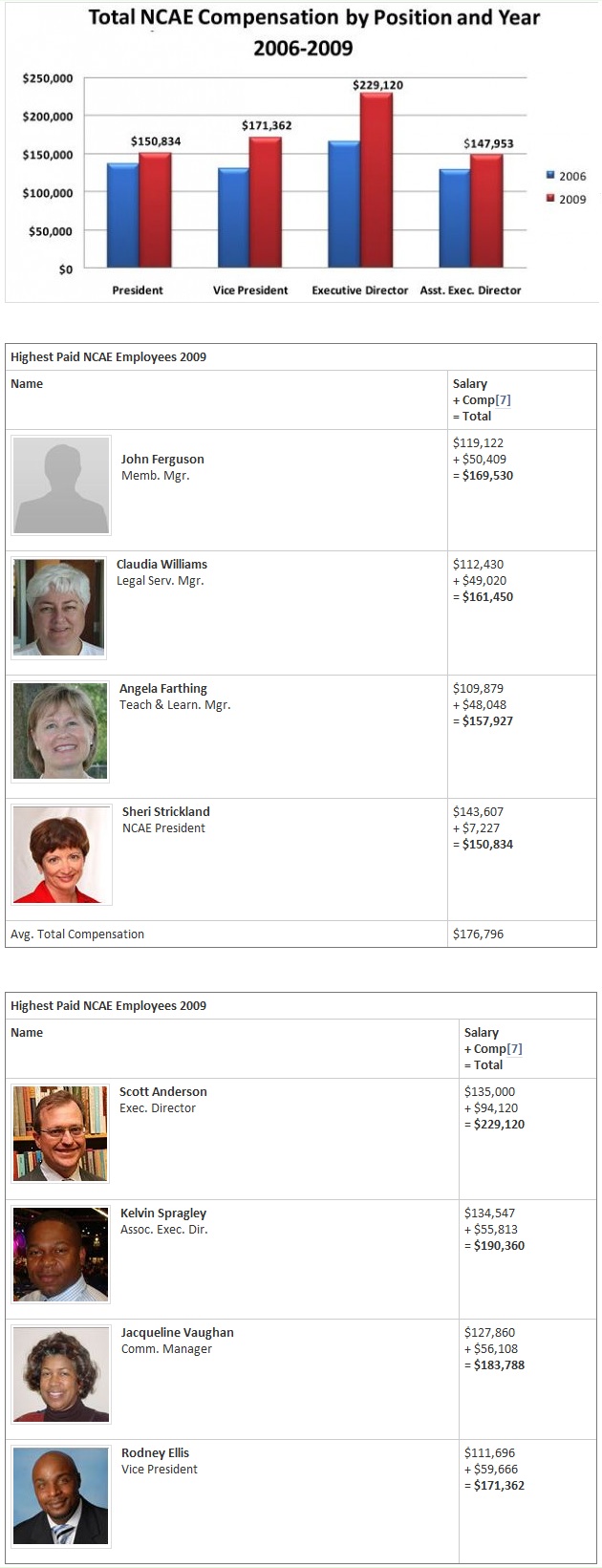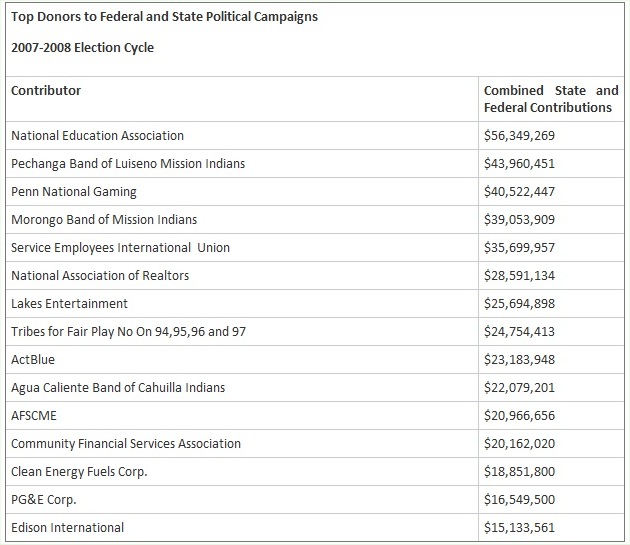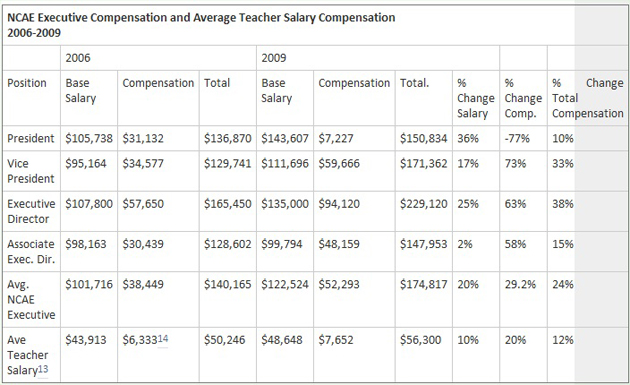Publisher's note: This article, by Bob Luebke, was originally published in Civitas in their Education section.
Last week the North Carolina General Assembly successfully overrode Gov. Perdue's veto of SB 727- No Dues Checkoff for School Employees. The legislation ends the practice of the state collecting dues check off payments for members of the North Carolina Association of Educators (NCAE).
The reaction from NCAE members was swift. On the day the legislation was approved, NCAE President Sheri Strickland issued a statement, "The Association believes the passage of this legislation - an override of Governor Perdue's veto -- to be a retaliatory action against NCAE for standing up for public school students and educators. The message from the legislature is clear - if you stand against cuts to public education, we will teach you a lesson."
NCAE has constructed this theme of Republican retribution for NCAE's criticism of the majority party's education policies. That explanation ignores relevant facts:
Dues check off was ended because the practice aided the radical policies of groups like the National Education
Association (the parent group of NCAE) not the interests of children.
NCAE portrays itself as having members from both political parties and as supportive of both Republican and
Democratic candidates. A look at NCAE's contributions to political campaigns, however, reveals 99 percent of
NCAE political contributions went to Democrats.
If NCAE is truly concerned about teacher salaries and securing more classroom funding, why has NCAE
executive compensation increased 24 percent from 2006-2009 while, over the same time period, the salary of
the average teacher in North Carolina only increased 12 percent?
With the final passage of SB 727 courtesy of the veto override, now is an appropriate time to re-visit a May 2011 Civitas analysis of NCAE Executive Compensation.
The following article was published on the Civitas Institute web site on May 4, 2011
For a link to this article's press release,
click here: for New Civitas Analysis Highlights Growth in NCAE Executive Compensation
The North Carolina Association of Educators (NCAE) portrays itself as concerned with the interests of students and public education. Don't be fooled by the rhetoric. NCAE represents the interests of approximately 50,000 teachers and public school employees who pay them. NCAE tax documents state the real purpose of its mission:
"[Tax] Exempt purpose is to advance the interests of educators and the promotion and protection of
welfare of the association's members"1
"To advance the interests of the teaching profession"2
While Schools Suffer, NCAE is Immune from Current Economic Hardship
Over the past several years, NCAE has bemoaned declining average teacher salaries, the loss of ABC Bonuses and rising insurance premiums. However, NCAE seems immune from these troubling trends.
In 2009, NCAE took in more than $11 million in total revenue,3 including $8.8 million in membership dues
Total NCAE revenue has increased from $10.1 million (2006) to $11 million (2009)
According to the NCAE web site, average dues for teachers for 2009-10 were about $370/year 4
Since 2006, the number of NCAE employees has increased from 86 to 135, an expansion of 56 percent
NCAE spent $7.9 million on salary and compensation in 2009. Divided among 135 employees, this generates
an average salary and compensation: $58,719 5
Compensation as a percentage of total NCAE expenses has increased from 66 percent (2006) to 72 percent
(2009)
NCAE Compensation: 2006-2009
Total compensation for the top four NCAE executives increased on average 24 percent between 2006 and
2009. Over the same time period, the average teacher salary and compensation in North Carolina increased
about 12 percent.6
 NCAE and Your Money
NCAE and Your Money
NCAE is classified as a 501(c) 6 tax exempt organization. Among other things the designation allows for lobbying and contributions to political campaigns. NCAE joins hands with its parent organization National Education Association (NEA) to influence political campaigns. The NCAE Constitution requires NCAE members to be members of NEA, the largest teachers union in the nation.8 Membership in NEA requires even more membership dues. This fall teachers will pay an average of $237 to NCAE and $178 to NEA for annual dues.9
NCAE frequently criticizes the influence of powerful corporate interests in American politics. However the fact is NEA and its local affiliates like NCAE represent the largest political influence on American politics. Let's look at the numbers:
In 2008, NEA spent $56.3 million on political campaign contributions.
NEA is largest political campaign spender in American politics. NEA's contributions are larger than Wal-Mart,
Microsoft, and Exxon combined10.
In 2009 NCAE made $710,716 in nondeductible lobbying and political expenditures11
2010 Contributions:
NCAE contributed $172,950 to candidates. Democrats received $170,650 in contributions (98.6 percent);
Republicans received $2,300 in contributions (1.3 percent).
2008 Contributions
NEA and NCAE contributed $1.8 million to help Bev Perdue win the 2008 Governor's race.
NEA spent another $1.7 million on campaign ads for Bev Perdue.
Such giving patterns would lead one to conclude all teachers are liberal. Are they?
A 2005 survey of NEA member political attitudes found NEA members "are slightly more conservative (50%)
than liberal (43%) in political philosophy."12
2009 Education Next -PEPG National Survey of public school teachers found 37 percent of public school
teachers somewhat or completely support the formation of charter schools. When told President Obama
supports charter schools, the figure increases to 43 percent
When told President Obama supports merit pay, 31 percent of public school teachers express support for such
proposals
 Source: National Institute for the Study of Money in Politics. Data available from www.followthemoney.org
NCAE Leadership Accomplishments?
The goal of NCAE and NEA is to protect and advance the interests of its members. These goals are achieved
Source: National Institute for the Study of Money in Politics. Data available from www.followthemoney.org
NCAE Leadership Accomplishments?
The goal of NCAE and NEA is to protect and advance the interests of its members. These goals are achieved
through higher pay and improved working conditions. Assuming teachers are not likely to receive a pay
increase in the current state budget, teachers will not have received a pay increase for three consecutive
budgets. What do stagnant teacher salaries and the threat of massive teacher layoffs say about the success of
those efforts?
Not all teachers have the same political views. Yet NEA and NCAE political contributions are overwhelmingly
to one party. Do you support union leadership ignoring views that differ from its far left agenda?
Between 2006-2009, NCAE executive salary and compensation packages have increased 24 percent. During
the same time period, average salary and compensation for NCAE teachers in North Carolina increased only 12
percent. NCAE teachers have not received a salary increase in either of the last two budgets and most likely will
not receive one this year. NCAE-backed candidates suffered numerous defeats last fall. Considering the lack of
success, what justifies the high levels of compensation by NCAE executives?
 1. Return of Organization Exempt from Income Tax, IRS Form 990, 2006
2.Ibid, 2008
3. North Carolina Association of Educators, 2009 Form 990 p. 1
4. Information from North Carolina Association of Educators web site. Information available at:
1. Return of Organization Exempt from Income Tax, IRS Form 990, 2006
2.Ibid, 2008
3. North Carolina Association of Educators, 2009 Form 990 p. 1
4. Information from North Carolina Association of Educators web site. Information available at:
http://www.ncae.org/Images/ProductImage_222.pdf
5. North Carolina Association of Educators, 2009, Form 990, p.1
6. Numbers from IRS 990 Forms for years 2006 and 2009. Top four positions are President, Vice President,
Executive Director and Assistant
Executive Director. Teacher salary figures are explained in footnotes on last
page.
7. Compensation includes retirement and other deferred compensation plus the value of nontaxable benefits.
See Schedule J page 2, IRS Form 990.
8. See NCAE Constitution. Available at: http://www.ncae.org/Images/ProductImage_335.pdf
9. From NCAE phone conversation, May 2, 2011
10. See: Teachers Unions Using Money to Win Friends and Influence Policy, Education Next, Fall 2010
11. See: Return of Organization Exempt From Income Tax, IRS Form 990, 2009
12. Data cited in Teachers Unions: Using Money to Win Friends and Influence Policy, Education Next, Fall
2010
13. Average Teacher Salary figures are from Highlights of North Carolina State Budget for appropriate years.
Figures also include base compensation supplements as noted
14. Compensation figure for 2006 and 2009 includes Medical Benefits and Retirement as allotted per year.
Note: All figures for NCAE Executives from 2006 and 2009 IRS Return of Organization Exempt From Income
Tax, Form 990.



